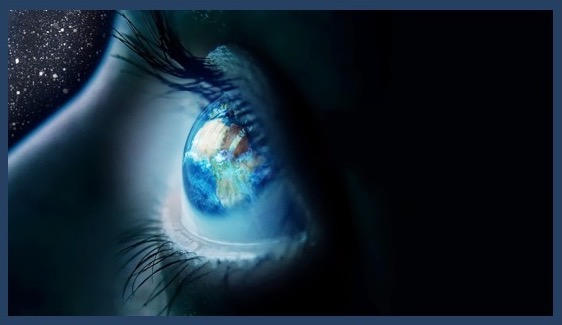Mon 21 Jul 2025
Thoughts on hell and karma
Posted by PJ under hell, karma, reconciliation, redemption, religion, retribution, sin, the shadow
1 Comment
I know it’s not hip in some circles to believe in hell, and I don’t believe in the classic hell of Christian mythology, but I do believe that when we die, we are forced to go through a complete life review with no filters, no rationalizations, and face up to who we have truly been. Our sins, if you will.*
That in itself would be truly hellish, having to face up to things, to uncork all the muck of our shadow selves. We’re all in store for it, I believe, to a greater or lesser degree. Perhaps children are exempt since they have so little life to review. I read a book by a mystic/psychic** who said that was how he perceived of hell, and it really resonated with me. He also said that the worse our misdeeds the more darkness we face in the afterlife, and it was only as we came to terms with what we had done and who we had been, own up to it, that we were able to move closer to the light. Someone like Hitler, he said, would be alone in complete cold and darkness until he came to terms with what he had done.
He didn’t believe in eternal damnation, just damnation that lasted as long as we clung to our old worldview. I don’t believe in eternal damnation, either. I think the Universe is more nuanced than that, that the worst hell is the one we impose upon ourselves, here and hereafter. I know this won’t be popular with those who want everlasting retribution against people they hate but think about how awful it would be to be stuck in the cold and dark, screaming alone in a void until you acknowledge the wrong you’ve done. Far worse than fire in my opinion. The agony of that fire would give you little time to think on and acknowledge the wrong you have done. It makes no sense.
Of course, there ain’t no guarantee that the mystical side of the universe makes any sense, but I do take comfort from the notion.
I guess I do believe in karma, but definitely not the way the New Age defines it: if you do something heinous in one life you’ll be born into horrible circumstances in your next life. This is essentially victim-blaming, and I reject it utterly. The Eastern concept of karma is more nuanced (and if I’ve gotten what follows wrong, I’d be very happy if someone corrected me): if you do something heinous in one life, you have the opportunity to make amends and change your ways in the same life, but if you don’t you will be born over and over again into the same circumstances, living out the same patterns until you learn to break free of them. That’s somewhat more palatable, but it doesn’t have enough retribution for my liking. (So, I will probably have to mend my ways and get rid of my need for retribution along the line somewhere.)
All this is just my own eccentric take on things, borrowed here and there from various mystical and religious texts. My own personal gnosis, if you will. It may not be pagan enough for someone who calls herself a pagan, but there it is.
I’ve been trying to do some of that reconciliation work on this side of the divide, acknowledging my past misdeeds, stripping away as much rationalization and excuses as possible. You know, dealing with my shadow side here rather than there. It isn’t easy and it’s very uncomfortable sometimes but when I do accomplish it, it’s quite liberating. I feel myself inching microscopically closer to the light.
*What is sin? I don’t think it’s about having sex outside “permitted” channels, or self-identity, or sloth, or any of the other minor venalities of conventional hell and brimstone religions. To me, sin is about doing physical, mental, or emotional harm to fellow creatures and the planet.
**I want to say it was George Anderson’s Lessons from the Light but it was a long time ago and I can’t be sure. I downloaded a Kindle sample and read the start of the book and it seems like the one but, as I say, it was a long time ago.

